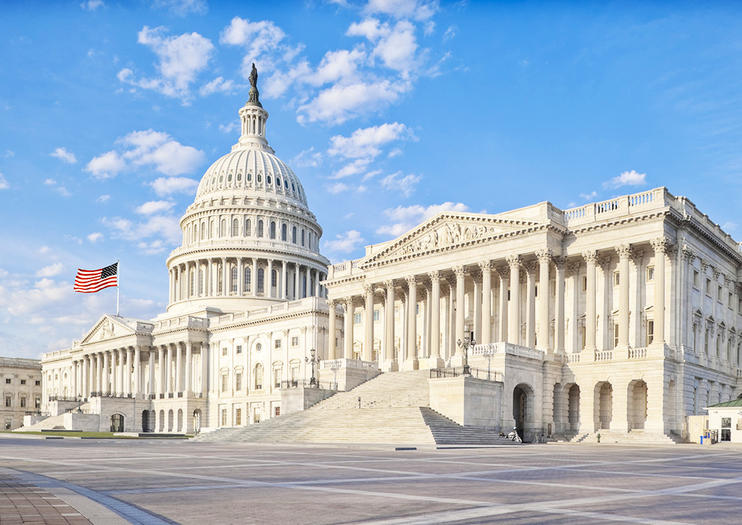Congress should introduce term limits for themselves
Photo By: Stock Photo
The United States Capitol houses the House of Representatives and the Senate.
In 1947, following the administration of Franklin D. Roosevelt, Congress ratified the 22nd Amendment imposing term limits on the Presidential office. This term limit maximizes at a span of ten years before the president is unable to hold the position any longer. Though Congress has recognized the need for executive terms limits in the past, they have also neglected a seat in politics that have long needed them: Congress themselves.
Paraphrasing Alexander Hamilton in Federalist 78, when individuals are subject to elections, they’re more likely to seek to appeal the public regardless of whether those actions are just or defensible. However, in the case of Congress, rather than appealing to the public in order to secure their tenure, they shift policymaking power to other bodies in order to escape the persecution of the public and get reelected.
Where there are people, there are conflicting ideas. It’s inescapable. But it is the job of elected legislative officials to hear the voices of those they’re representing and incite change in the government on their behalf. The truth is, however, that as the years go by, the voices of the people have had a decreasing effect on legislative policymaking. The culprit behind the shifting power away from the people is none other than the growing bureaucracies.
Since the creation of the Interstate Commerce Commission in 1887, Congress has been delegating an increasing amount of policymaking authority to these bureaucratic agencies. When this is done, the power to legislate and create policies moves away from the legislature – the branch of government for the people – and to agencies, the people have absolutely no control over. If a Congressional member displeases the public or business, you can simply vote them out of office or elect someone different after two years. However, bureaucrats are not elected by the people, therefore individuals lose control over the policymaking in the bureaucrat’s jurisdiction.
In order to give power back to the people, term limits on members of Congress are essential.
Some may argue that term limits are necessary because the people have the power to elect who they wish and can simply elect a different, more suitable government official. However, even this point is skewed due to the massive and unjust advantage incumbents receive as far as publicity and campaign budgets go. If these members of Congress were subject to term limits, they would be less inclined to delegate power to other agencies because they would no longer have to trip over themselves appealing to the public.
When a position in office is limited, it is only natural to incite change within that role in the time you have. Term limits on the members of the American legislature would implore elected officials to regain their power and policy-making authority and rebalance power in government back where it belongs – in favor of the people.
A ratified 28th Amendment of this nature may not solve all of America’s issues. But it will, however, give the people of America the power to.

